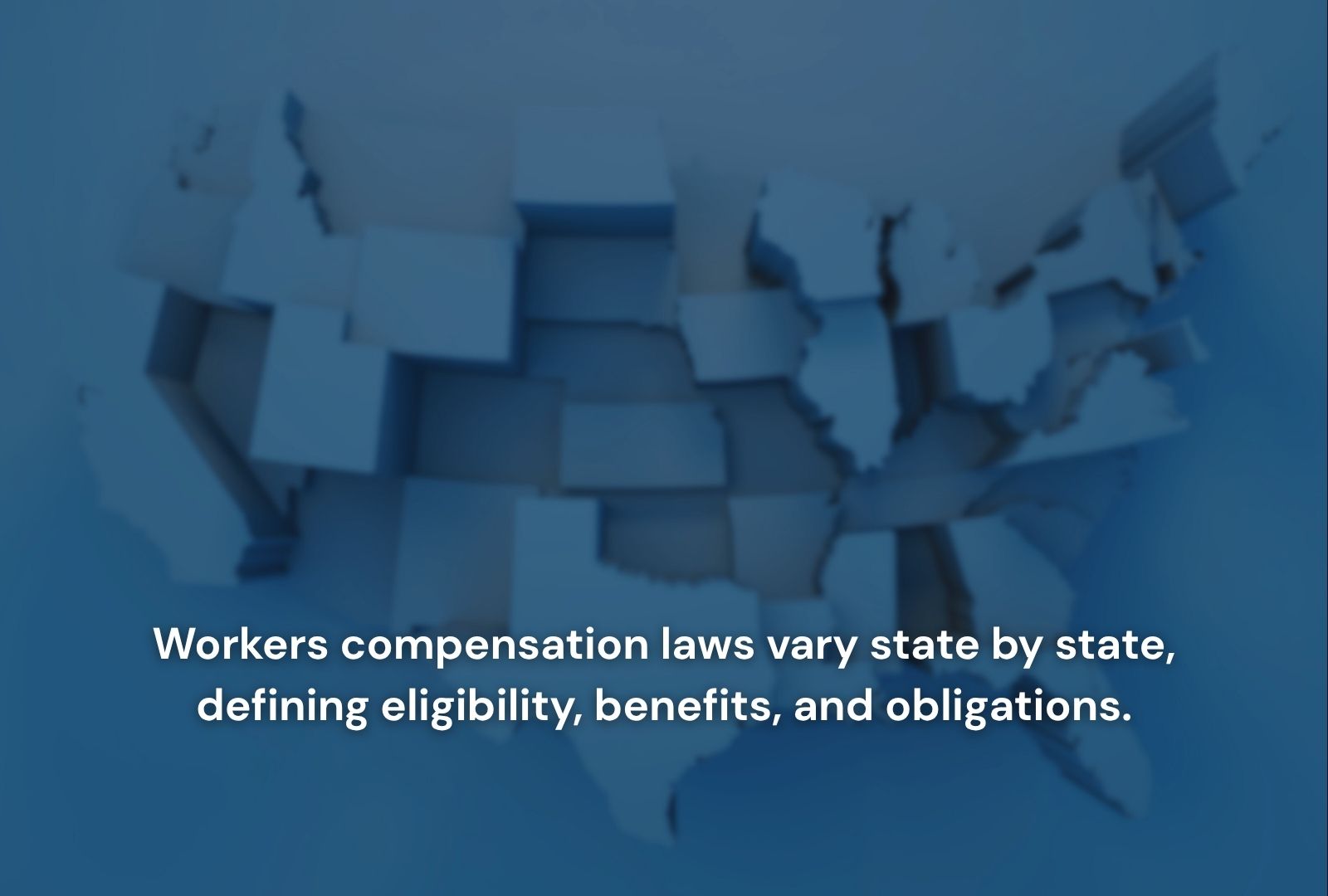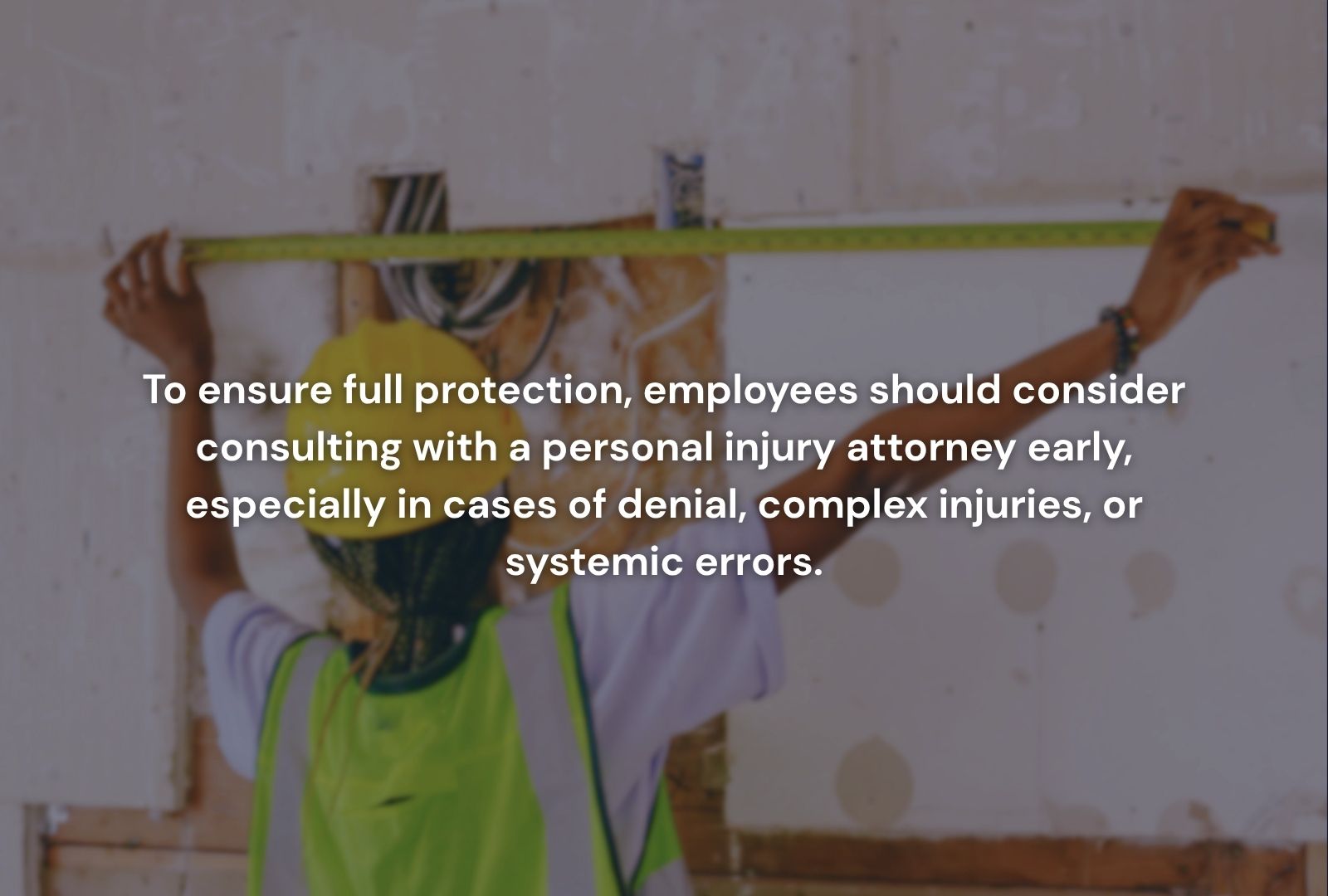Workers compensation laws vary state by state, defining eligibility, benefits, and obligations. As of January 1, 2025, almost every U.S. state—except Texas—requires employers to carry workers compensation insurance. For federal employees, the Federal Employees’ Compensation Act (FECA) applies. Federal and state systems together shape the legal landscape for workplace injuries.

How Do State Requirements Differ?
Every state sets its own rules regarding:
- Coverage thresholds
- Filing deadlines
- Benefit levels
- Reporting procedures
For example:
- In Texas, employers can opt out (“non-subscribers”), but they forfeit tort protections and face full liability if negligence causes injury Wikipedia.
- Four states—North Dakota, Ohio, Washington, and Wyoming—mandate coverage via a state-run fund (monopolistic market) Wikipedia+1Insureon+1.
Coverage Thresholds & Compliance

Most states require coverage once you hire at least one employee USAGov+15Insureon+15NFIB - NFIB Small Business Association+15. However, exceptions exist:
- Alabama exempts firms with four or fewer employees Wikipedia+15The Hartford+15Reuters+15.
- Alaska requires coverage for one or more employees but exempts specific groups like domestic workers Reuters+7The Hartford+7Insureon+7.
Violating these mandates can result in penalties ranging from fines to jail time. California, for example, imposes up to 1 year imprisonment or a $100,000 fine .
Key 2024–25 Changes in Workers’ Comp Law
Premium Adjustments
Several states enacted rate changes for 2025:
- Connecticut: –6.1%
- West Virginia: –9.1%
- Missouri: –5.3%
- Massachusetts: –14.6%
- Florida: –1%
- Washington: +3.8% to fund benefits Reuters.
Expanded Worker Protections
- California (AB 1870): Employers must inform employees about the right to legal counsel, and failure to do so is a misdemeanor Insureon+3Reuters+3Forbes+3.
- Pennsylvania (Act 121 of 2024): First responders now face a lower burden of proof for PTSD claims, effective October 30, 2025 NFIB - NFIB Small Business Association+11Reuters+11Times Union+11.
- Michigan (Bills S.B. 1079 & S.B. 1080): Address post-termination benefits and broaden compensable injuries to include neurocognitive and stress injuries (pending committee review) Wikipedia+3Reuters+3CT Insider+3.
Federal System for Employees
Federal workers fall under FECA, which covers wage loss, medical costs, disability benefits, and vocational rehabilitation DOL.
How to Use This State‑by‑State Guide
Follow these steps:
- Step 1: Identify your state’s threshold and coverage requirements.
- Step 2: Check whether coverage must be purchased privately or via a state fund.
- Step 3: Note key 2025 legislative updates affecting benefits or compliance.
- Step 4: Review filing timelines and appeals processes specific to your jurisdiction.
For example, an employer in Florida must carry coverage for any hired employee and can expect a small decrease in premiums, while in Washington coverage is mandatory through the state fund and premiums rose 3.8% to support benefit costs Insureon.

Why Legal Representation Still Matters
To ensure full protection, employees should consider consulting with personal injury attorney early—especially in cases of denial, complex injuries, or systemic errors by insurers or employers.
Worker Compensation Resources
- Workers Compensation Insurance 101: Outlines employer obligations and employee rights under state law.
- What Employers Should Know About Filing Injury Reports: Provides guidance on proper incident documentation and deadlines.
Covering those topics strengthens your understanding of legal compliance and ensures cohesive internal linking across the cluster.


















